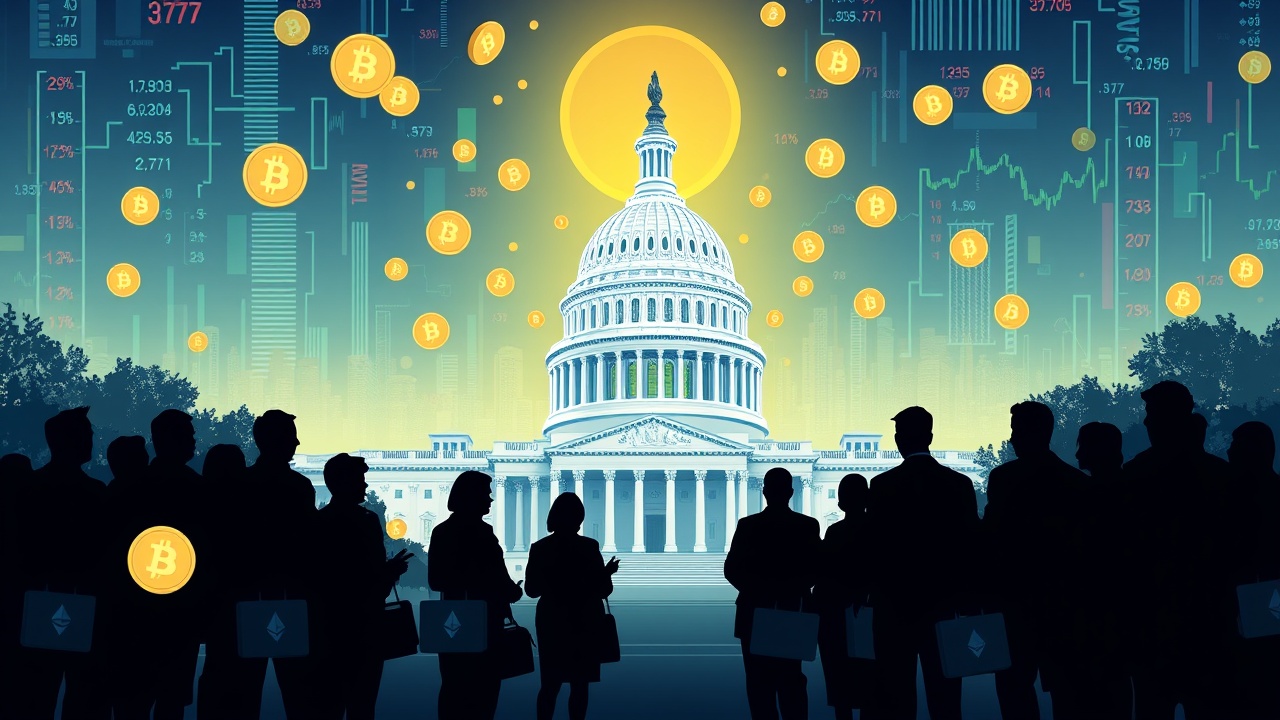US Congress Resumes Discussions on Cryptocurrency Regulations
As the US Congress resumes its activities following a monthlong recess, significant discussions are anticipated regarding regulations that govern the cryptocurrency and blockchain sectors. The Senate and House of Representatives had paused their legislative work weeks ago, adhering to their pre-established calendar set in January. This hiatus effectively stalled deliberations on a pivotal proposal aimed at creating a market structure for digital assets, the potential appointment of Brian Quintenz as chair of the Commodity Futures Trading Commission (CFTC), and a legislative effort concerning a ban on central bank digital currencies (CBDCs).
Advancement of the CLARITY Act
Upon reconvening, Republicans in Congress are poised to prioritize the advancement of a cryptocurrency market structure bill through committee stages, followed by a vote on the Senate floor. The Digital Asset Market Clarity (CLARITY) Act, which gained traction in July with bipartisan support—passing the House with votes from 78 Democrats—now awaits refinement and debate in the Senate. Notably, Wyoming Senator Cynthia Lummis, an ardent advocate for clearer crypto regulations, has emerged as a prominent figure urging progress on this essential legislation.
During an August conference focused on blockchain technology, Lummis expressed optimism that the Senate Banking Committee would finalize its version of the market structure legislation by the close of September, with the Senate Agriculture Committee expected to review it in October. Lummis is optimistic that the finalized bill could reach President Trump’s desk by year-end. However, as of now, neither committee has scheduled hearings to discuss the bill.
Leadership Changes at the CFTC
Another noteworthy development in the CFTC is the imminent shift in leadership, as Caroline Pham, a Republican and the current acting chair, assumes the position following Kristen Johnson’s departure announced earlier this year. Pham indicated plans to transition to the private sector if Quintenz’s nomination is confirmed by the Senate. Notably, Quintenz’s confirmation remains uncertain; the agriculture committee previously delayed a vote on his nomination at the White House’s request prior to the congressional break. Additionally, reports suggest that Gemini co-founders, Cameron and Tyler Winklevoss, have urged President Trump to reassess his support for Quintenz citing concerns over his commitment to the crypto agenda.
House of Representatives and CBDC Legislation
Meanwhile, the House of Representatives is set to vote on a defense bill that includes provisions to prohibit the Federal Reserve from creating a digital dollar, echoing elements from the previously passed Anti-CBDC Surveillance State Act. This updated legislation, associated with the National Defense Authorization Act, reflects differing Republican views on regulatory approaches concerning digital currencies. It remains uncertain whether either legislative initiative will garner enough support to pass through Congress without changes or alterations.
As Congress reconvened, the cryptocurrency sphere braces for potential shifts in policy and regulatory landscapes that could significantly impact the sector.




